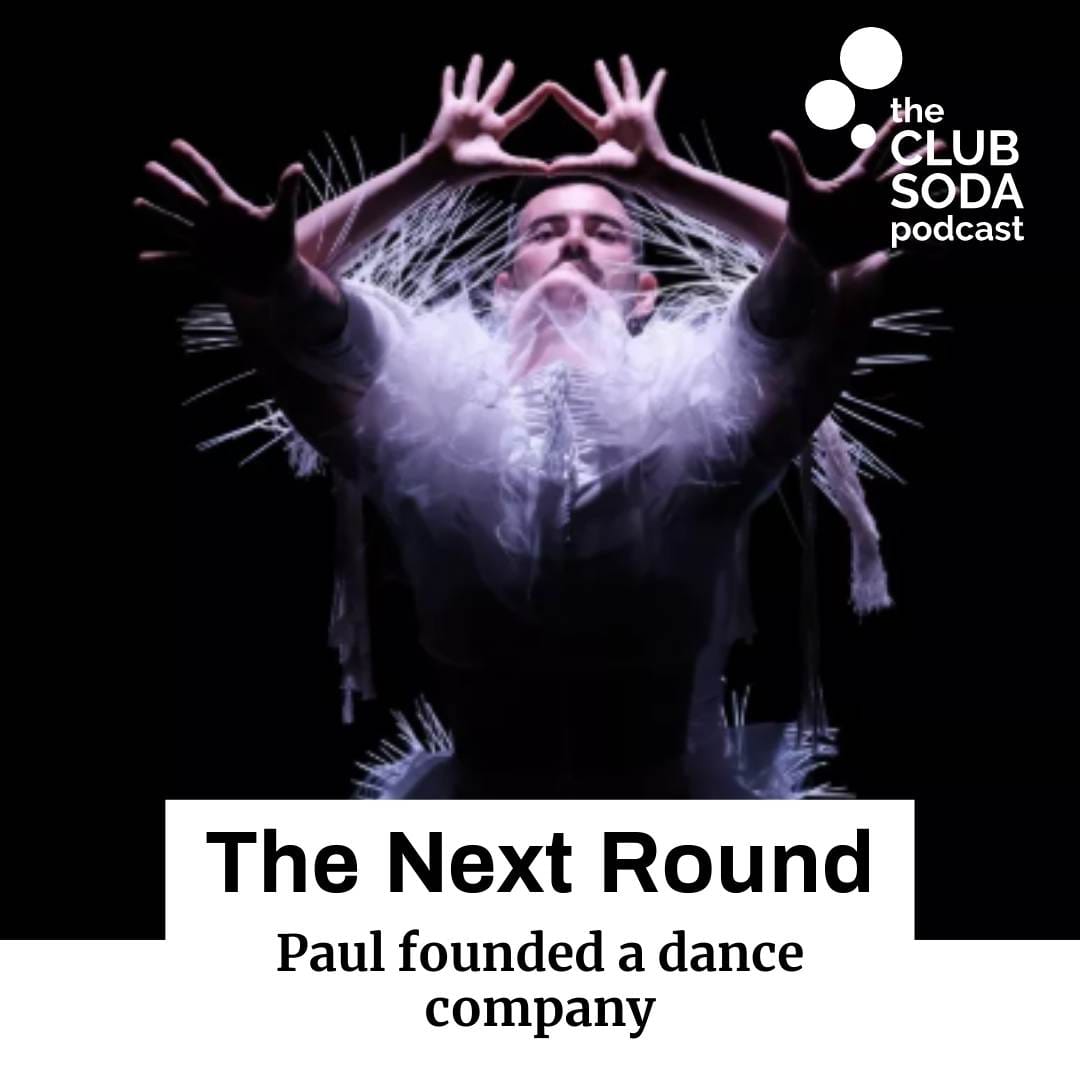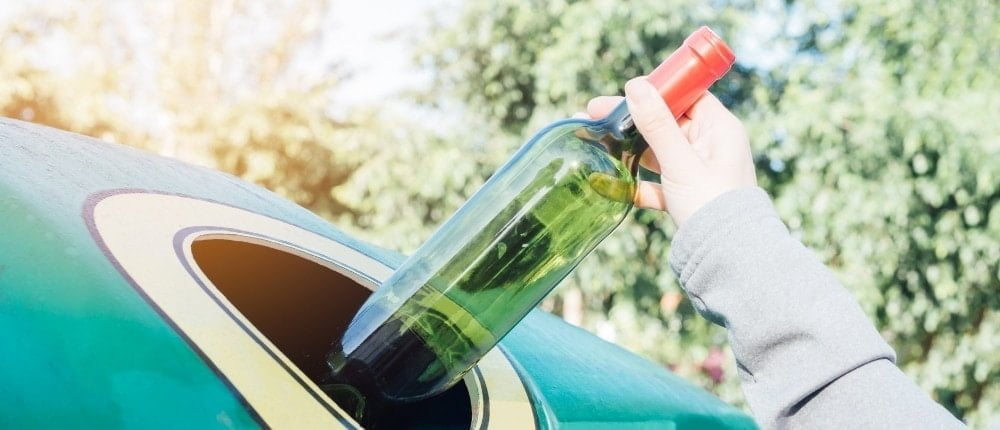
This website uses cookies to improve your experience. We'll assume you're ok with this, but you can opt-out if you wish. Read More
The Next Round: What happens after you change your drinking?

There are many good reasons you might want to stop drinking wine.
Maybe wine o’clock is getting earlier each day. Perhaps one bottle inevitably turns into two. It might be that the hangovers are getting too much, or your habit is becoming too expensive. Or, sometimes, there’s just the shame of putting out all the glass bottles for recycling. Whatever’s prompting you to rethink your wine drinking habits, this article is for you.
Alcohol is alcohol, of course. But there are many characteristics of wine that make it easier to drink in increasing quantities. So this isn’t just about quitting drinking in general. It’s about stopping drinking wine specifically.
In my work, running Club Soda’s courses and workshops, I spend a lot of time talking to wine drinkers about cutting down and quitting. That includes helping people inside the wine industry too. I’m not a wine expert, but I’m fascinated by wine culture and appreciation, especially how they keep you drinking. This article will also share some practical tips on stopping drinking wine, re-educating your palate and opening your mind to alcohol-free options.
As a wine drinker, you’ve been making choices every time you pick up a bottle in a store or scan a restaurant’s list. You bring all your previous experience and knowledge about choosing a wine to bear, considering your preferences for grape varieties, wine-making regions, producers and even the design of labels.
But one of the things you might not consider is that all of these choices are influenced by the multibillion-dollar international wine industry. Globally, wine revenue is growing and is set to reach $528.7bn by 2025. And I’m not criticising the scale of the industry in itself. There are hundreds of thousands of small-scale wine producers and internationally-recognised brands creating jobs and having a positive impact on the environment. I simply think it’s important to recognise that most of your decisions about wine have been made on your behalf, long before you ever picked up a bottle.
Wine marketing research has much to say about what influences decisions about wine. Looking across different countries to take a cross-cultural perspective, researchers identify four things that are important when you’re choosing wine:
If you could see fermented grape juice in a bottle as just alcohol, stopping drinking wine would be easier. But there is so much more going on. Wine’s intrinsic and extrinsic qualities, together with your attitudes, opinions and feelings about it, are all engaged in the creation of wine appreciation. They are all ways of getting stuck in wine culture. And they are all going to be impacted as you stop drinking wine.
Your attitudes and opinions about wine aren’t just shaped by your experiences as a drinker. You’re part of a culture that is generally uncritical of alcohol. For example, few drinks writers ever tackle alcohol problems head-on. Wine expert Jancis Robinson is a notable exception, though her book The Demon Drink is sadly long out of print.
As a result, you probably have beliefs about wine that you’ve never critically examined. As you consider how to stop drinking, you might start by reflecting on some of the commonly held misconceptions about wine.
These are just a few of the misconceptions about wine that you might be harbouring. But as you prepare to stop drinking wine, start noticing what you believe about wine and wine drinking. It may well be wrong.
And whatever you read in the news, be suspicious about any claim that wine is good for you. Ultimately, whatever other substances are in your glass, the wine still contains alcohol. So any supposed benefits have to be weighed up against the impact that alcohol has on your body.
Recognising the impact that wine has on your body is important as you prepare to stop drinking.
You’re not unusual if you came to wine drinking later in life, and consequently when you’d already developed some tolerance for alcohol. The average UK wine drinker is aged around 50 (and has an above-average income too). But as a result of your age and experience with alcohol generally, chances are you have to drink a fair amount of wine to experience any effect from it at all.
This means that if you’re a regular wine drinker, you may need to consider the possibility of alcohol withdrawal symptoms when you stop. If you are drinking the equivalent of a bottle and a half of wine every day (that’s 150ml or 5 fl oz of pure alcohol), you should not stop suddenly. Instead, seek to cut down your consumption gradually over time.
Preparing to stop drinking wine also means squaring up to the part that it has been playing in your life. Drinking is always about more than alcohol. So consider whether your wine consumption is a way to connect with others. Perhaps drinking wine meets an emotional need, by helping you relax at the end of the day. Or maybe your wine habit is just a routine part of life.
As you prepare to let go of your wine habit, notice the gaps it will leave behind. Each of these gaps will need to be addressed in different ways if you are going to keep wine at arm’s length.
And you might want to make practical preparations too. You’ve designed your life to make wine drinking easy. So take a step back and think about real-world changes you can make. If wine stares you in the face whenever you walk into your kitchen, you’re making life harder for yourself. Consider the wine paraphernalia you’ve got around your house too. Is that wine o’clock kitchen clock going to help you to stop drinking wine?
Whether you cut down gradually or stop all at once, there will be a day on which you stop drinking. For more advice and tips, check out this essential guide to day one.
Swapping alcoholic for alcohol-free drinks is a great way to stop drinking. Especially at first, you make life better by taking alcohol out of the picture while maintaining your habits and routines. And in the longer-term, alcohol-free drinks can become an essential part of living and celebrating without booze. Many Club Soda members have discovered the life-changing benefits of choosing alcohol-free drinks.
But one of the most common complaints I hear about alcohol-free wine is that it doesn’t taste like wine. And I see a tragic chain of events that follows an initially disappointing choice, as people simply continue drinking alcohol.
Is this you? You’re determined to stop drinking wine, you find an alcohol-free wine but don’t like it, and so you give up on the idea of change entirely.
I think this situation demonstrates quite how effective wine culture is in narrowing your choices. You’ll cling on to wine, even when you want to stop, because you can’t imagine not drinking wine. Your alcohol-free choices have to be wine, because you can’t imagine not drinking wine. And if you’re alcohol-free choices can’t be wine, you’ll just keep drinking.
You’re not alone if you’ve got stuck at this point. If you find yourself thinking, “it doesn’t taste like wine”, I want to make three suggestions:
Compared to other types of alcohol production, wine-making is a slow process. So innovation in alcohol-free wines has been slower than in other areas. But things are changing fast now. Alcohol-free wine is getting better, and new alcohol-free wines are emerging all the time. So don’t stop looking.
And remember that you can make alcohol-free drink choices beyond wine. Go back to your reflections on the characteristics of the wines that you have enjoyed. You’ll find those characteristics in alcohol-free drinks beyond wine, such as sparkling teas, kombuchas and also alcohol-free beers. As you stop drinking wine, it’s time to broaden your horizons, challenge your taste buds and embrace some adventure. You might surprise yourself.
If you’re ready to stop drinking wine, Club Soda can help:
Anyone can stop drinking wine, and the Club Soda community is full of people who’ve done exactly that. Join them.
This website uses cookies to improve your experience. We'll assume you're ok with this, but you can opt-out if you wish. Read More
| Name | Domain | Purpose | Expiry | Type |
|---|---|---|---|---|
| wpl_user_preference | joinclubsoda.com | WP GDPR Cookie Consent Preferences. | 1 year | HTTP |
| PHPSESSID | www.tickettailor.com | PHP generic session cookie. | 55 years | HTTP |
| AWSALB | www.tickettailor.com | Amazon Web Services Load Balancer cookie. | 7 days | HTTP |
| YSC | youtube.com | YouTube session cookie. | 55 years | HTTP |
| Name | Domain | Purpose | Expiry | Type |
|---|---|---|---|---|
| VISITOR_INFO1_LIVE | youtube.com | YouTube cookie. | 6 months | HTTP |
| Name | Domain | Purpose | Expiry | Type |
|---|---|---|---|---|
| _ga | joinclubsoda.com | Google Universal Analytics long-time unique user tracking identifier. | 2 years | HTTP |
| sbjs_migrations | joinclubsoda.com | Sourcebuster tracking cookie | 55 years | HTTP |
| sbjs_current_add | joinclubsoda.com | Sourcebuster tracking cookie | 55 years | HTTP |
| sbjs_first_add | joinclubsoda.com | Sourcebuster tracking cookie | 55 years | HTTP |
| sbjs_current | joinclubsoda.com | Sourcebuster tracking cookie | 55 years | HTTP |
| sbjs_first | joinclubsoda.com | Sourcebuster tracking cookie | 55 years | HTTP |
| sbjs_udata | joinclubsoda.com | Sourcebuster tracking cookie | 55 years | HTTP |
| sbjs_session | joinclubsoda.com | SourceBuster Tracking session | Session | HTTP |
| Name | Domain | Purpose | Expiry | Type |
|---|---|---|---|---|
| mailchimp_landing_site | joinclubsoda.com | Mailchimp functional cookie | 28 days | HTTP |
| __cf_bm | tickettailor.com | Generic CloudFlare functional cookie. | Session | HTTP |
| NID | google.com | Google unique id for preferences. | 6 months | HTTP |
| Name | Domain | Purpose | Expiry | Type |
|---|---|---|---|---|
| _ga_10XZMT03ZM | joinclubsoda.com | --- | 2 years | --- |
| AWSALBCORS | www.tickettailor.com | --- | 7 days | --- |
| cf_clearance | tickettailor.com | --- | 1 year | --- |
| VISITOR_PRIVACY_METADATA | youtube.com | --- | 6 months | --- |
Join Club Soda for 10% off your first order of drinks for UK delivery. Plus get our latest news and special offers for members to choose better drinks, change your drinking and connect with others.
If you get an error message with this form, you can also sign up at eepurl.com/dl5hPn